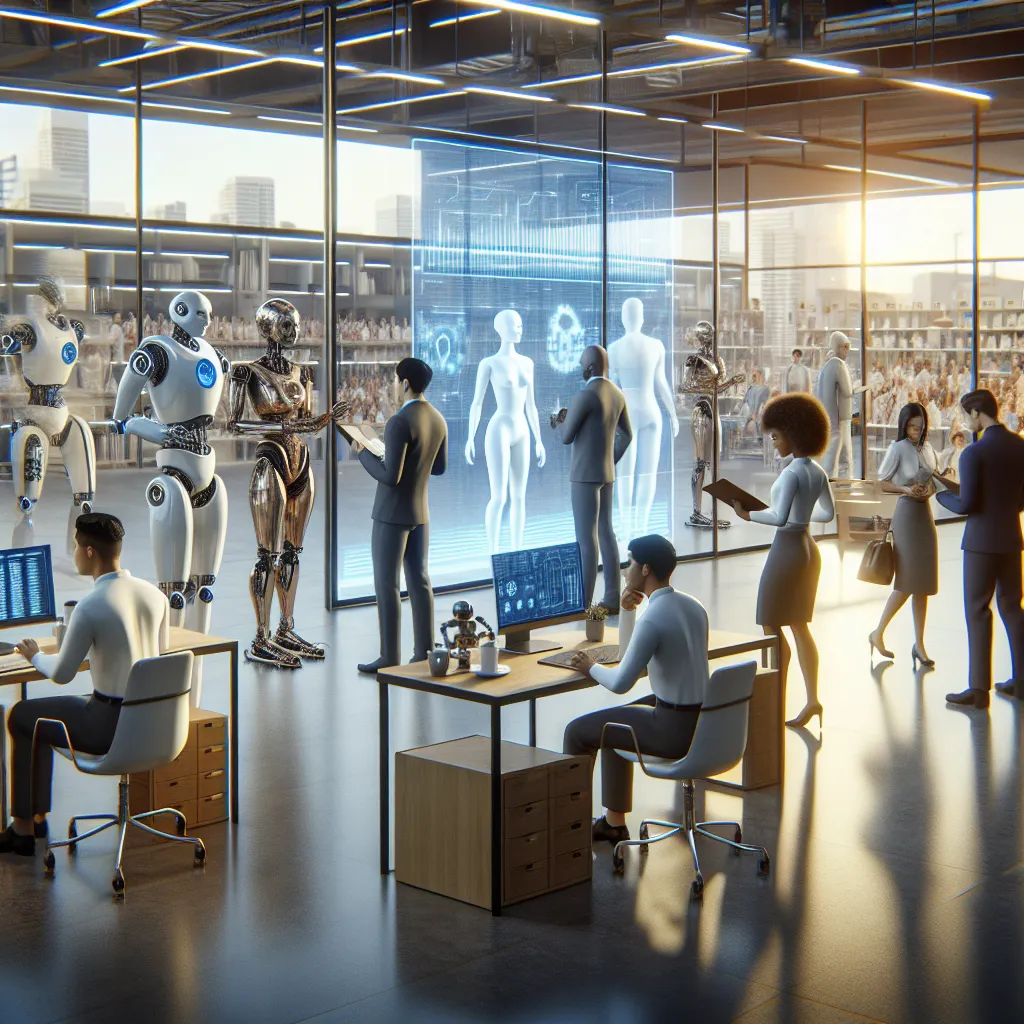Automation’s impact on the job market is a hot topic in IELTS Writing Task 2. This subject frequently appears in exams due to its relevance in today’s rapidly evolving technological landscape. Based on past exam trends and current socio-economic discussions, we can expect this theme to remain prominent in future IELTS tests. Let’s explore a relevant question and provide sample essays to help you tackle this topic effectively.
Analyzing the Question
Some people think that in the future, machines will do most of the work currently done by humans. To what extent do you agree or disagree with this statement?
This question asks for your opinion on the future role of automation in the workplace. It’s crucial to:
- Clearly state your position
- Provide balanced arguments
- Support your points with relevant examples
- Consider both short-term and long-term implications
Sample Essay 1 (Band 8-9)
Technological advancements have led many to believe that machines will eventually dominate the workforce, replacing human labor in numerous sectors. While I agree that automation will significantly impact the job market, I believe that human involvement will remain crucial in many areas.
Undoubtedly, machines are increasingly taking over tasks previously performed by humans. In manufacturing, robots have already replaced many assembly line workers, improving efficiency and reducing costs. Similarly, in the service industry, self-checkout counters and automated customer service systems are becoming more prevalent. These trends suggest a future where routine and repetitive tasks are predominantly handled by machines.
However, it’s essential to recognize that human skills remain irreplaceable in many aspects of work. Creative industries, for instance, rely heavily on human imagination and emotional intelligence – qualities that machines currently cannot replicate. Moreover, fields like healthcare, education, and complex problem-solving require human empathy, adaptability, and critical thinking. The nuanced decision-making abilities of humans are still superior to artificial intelligence in many scenarios.
Furthermore, as automation increases, new job opportunities are likely to emerge. The development, maintenance, and supervision of automated systems will create roles that didn’t previously exist. Additionally, the shift towards automation may allow humans to focus on more fulfilling and intellectually stimulating work, potentially improving job satisfaction and productivity.
In conclusion, while machines will undoubtedly play a more significant role in the future job market, I believe that human skills will remain indispensable. The key lies in adapting to this changing landscape, focusing on developing skills that complement rather than compete with machine capabilities.
(Word count: 273)

Sample Essay 2 (Band 6-7)
Many people think machines will do most of the work in the future instead of humans. I partly agree with this idea because machines are getting better, but I also think humans will still be important in many jobs.
It’s true that machines are doing more work now. In factories, robots make things faster than people. In shops, we see self-checkout machines. These examples show that machines can do some jobs that people used to do. This trend might continue in the future, with more machines doing simple jobs.
However, there are many jobs that machines can’t do well. For example, teachers need to understand students’ feelings and help them learn. Doctors need to make difficult decisions about patients’ health. These jobs need human skills like empathy and complex thinking, which machines don’t have.
Also, as we get more machines, we might need new jobs to look after them. People will need to fix machines when they break and make sure they work correctly. This means there could be new types of jobs for humans in the future.
In conclusion, I think machines will do more work in the future, but humans will still be very important. We need to learn new skills to work with machines and do the jobs that machines can’t do.
(Word count: 213)
Key Writing Tips
-
Structure: Both essays follow a clear structure with an introduction, body paragraphs, and a conclusion. The Band 8-9 essay demonstrates more sophisticated paragraph development.
-
Language: The Band 8-9 essay uses more advanced vocabulary and complex sentence structures, while the Band 6-7 essay uses simpler language but maintains clarity.
-
Arguments: Both essays present balanced arguments, but the Band 8-9 essay provides more detailed examples and explores implications more deeply.
-
Coherence: Use linking words effectively to connect ideas. The Band 8-9 essay demonstrates this more skillfully.
-
Task Response: Both essays address the question directly, but the Band 8-9 essay offers a more nuanced perspective.
Important Vocabulary
- Automation (n.) /ˌɔːtəˈmeɪʃn/ – The use of machines to do work automatically
- Artificial Intelligence (n.) /ˌɑːtɪfɪʃl ɪnˈtelɪdʒəns/ – Computer systems able to perform tasks that normally require human intelligence
- Workforce (n.) /ˈwɜːkfɔːs/ – The total number of people working or available for work
- Efficiency (n.) /ɪˈfɪʃnsi/ – The state of being able to work well without wasting time or resources
- Adaptability (n.) /əˌdæptəˈbɪləti/ – The quality of being able to adjust to new conditions
- Critical thinking (n.) /ˈkrɪtɪkl ˈθɪŋkɪŋ/ – The objective analysis and evaluation of an issue to form a judgment
- Empathy (n.) /ˈempəθi/ – The ability to understand and share the feelings of another
- Technological advancement (n.) /ˌteknəˈlɒdʒɪkl ədˈvɑːnsmənt/ – Progress in technology or science
Conclusion
The influence of automation on the job market is a complex and evolving topic in IELTS Writing Task 2. To excel in writing about this subject, focus on presenting balanced arguments, using relevant examples, and demonstrating a nuanced understanding of both the benefits and challenges of automation.
Future IELTS questions might explore related themes such as:
- The ethical implications of replacing human workers with machines
- The role of education in preparing the workforce for an automated future
- The impact of automation on specific industries or developing countries
To enhance your writing skills, try crafting your own essay on this topic and share it in the comments section below. This practice will help you apply the strategies discussed and receive feedback from fellow learners.